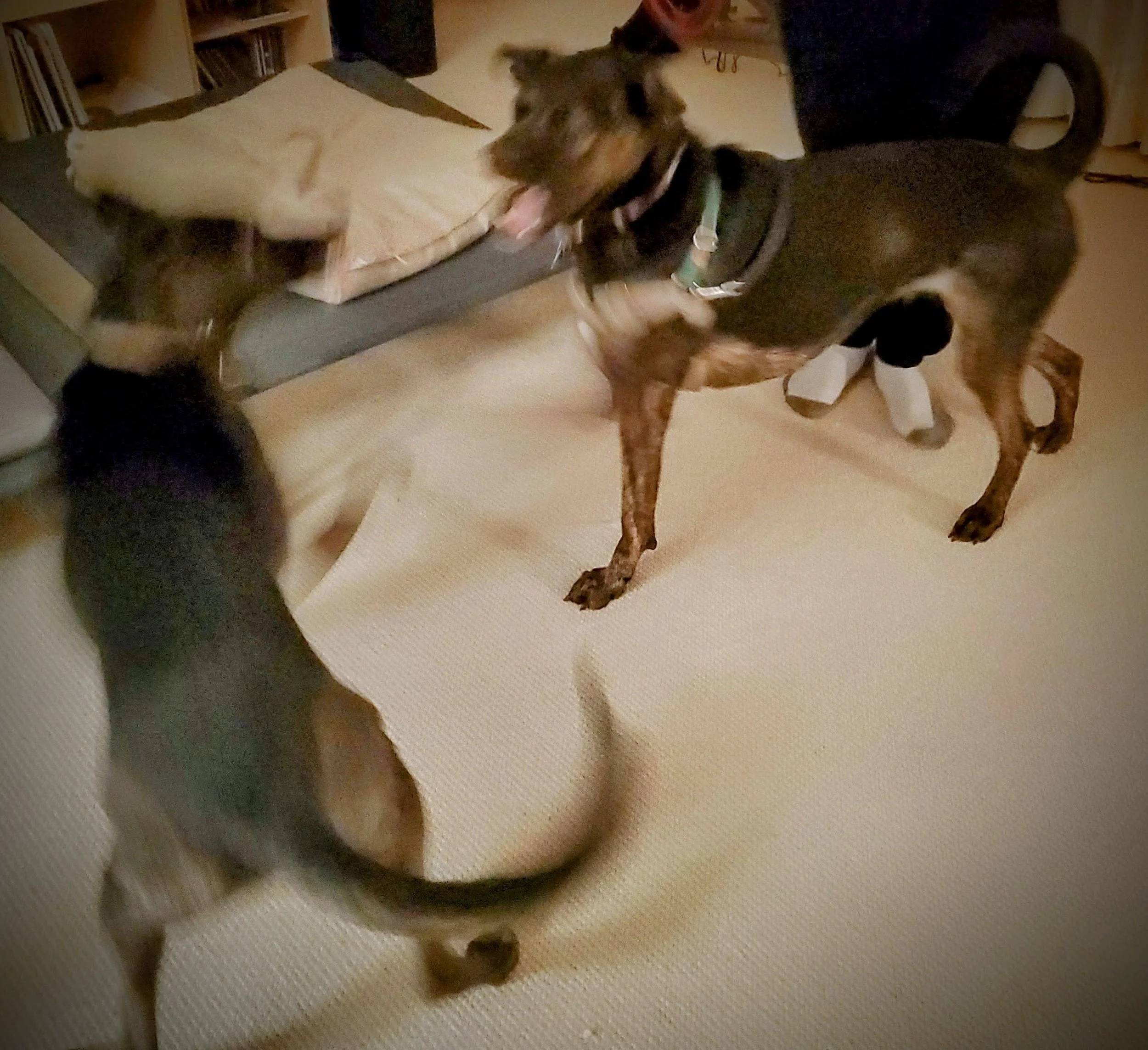This morning I took the dogs to one of our local dog parks. Both Nyx and Clio are reactive to other dogs when they’re on leash. They can be really loud and intimidating.
As we got out of the car I put them both on leashes. There was kind of a gauntlet situation happening. Not only was there someone coming out of the park gate with their dog, there was also someone else getting out of their car with a dog. My dogs were excited (agitated) about being at the park and I was feeling impatient.
I steered clear of the dog leaving the park but the other dog and owner were right behind us to enter. Nyx and Clio did their barking and lunging routine and the person with the other dog said something to me. I couldn’t hear it over the barking. “What?” He had to repeat it three increasingly loud times before I understood: “Are those dogs socialized?”
My hackles went right up. I was already anxious. I was stressed and self-conscious about how Nyx and Clio were behaving. I took this reasonable question as a criticism. I got angry and defensive and lashed out at the guy. We had a minor confrontation, then both went our separate ways into the park.
It took me just a couple minutes to understand what had happened. I felt embarrassed by my behavior, and frustrated about the opportunities I’d missed (I did get the chance to apologize to the guy, thankfully).
One of my central preoccupations is training myself to increase the odds of making choices guided by my vows. In this case, I didn’t notice that I made choices. Consider these two vows I (and pretty much all Buddhists) have taken:
Embracing beneficial actions
Not being angry
I struggle with what looks to me like a wide gap between my impression of these on reading them (they’re great, they point in the right direction, they’re pretty clear, etc.) and in action in my life (I don’t understand them, I can’t imagine how to live with them).
The crux is that those precepts are written in a way that is really abstracted from daily life. The words beneficial and angry are conceptual. They’re really big and too far away to work with (at least for me). My interaction with that guy at the dog park was zoomed in. It was super gritty. There were hormones and chemicals pumping, dogs baring their teeth and barking and straining at their leashes. Voices and heart rates were raised. How do I even get near beneficial actions or not being angry in the middle of that?
This is why I’m focusing on things like the collar grab game, and inhibiting habitual behaviors in environments without many stimuli. I want to improve my skills, to train my body and mind to recognize choices I’m making. I’m in training like Rocky running through the streets of Philadelphia and working the speed bag at the gym. Susan Garrett often says that our dogs are doing the best they can, with the education we’ve given them, in the environment we’ve put them in. I did the best I could with my education in that environment. An environment drenched in powerful stimuli like that is more than I can handle reliably, but it’s not hopeless. I’m in training.
In Genjokoan, Dogen Zenji wrote, “To study the buddha way is to study the self. To study the self is to forget the self. To forget the self is to be actualized by myriad things.”
There are an infinity of approaches to studying the self. I suspect we’re always doing it in whatever way we’re ready for (doing the best we can with our training right where we are). This simple training I’m doing with myself and my dogs is definitely one. So is writing this stuff down to give my observations a temporary shape as I move around in time and space.
